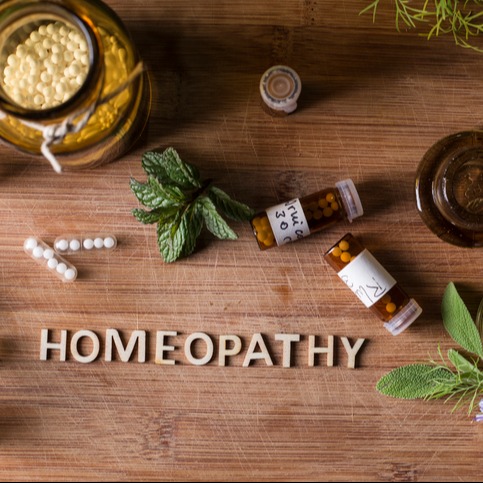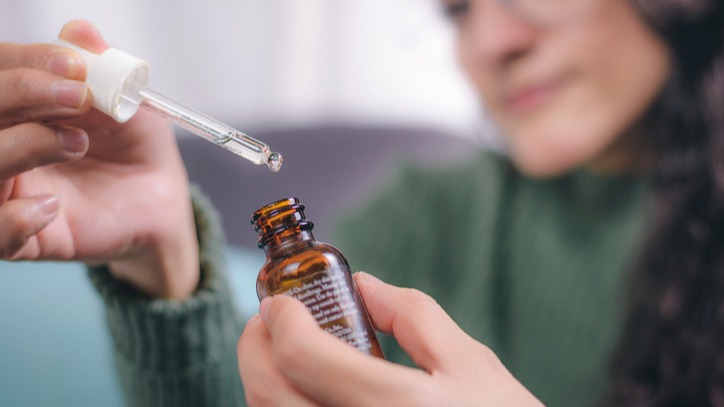
Are you ready to explore the fascinating world of homeopathy and determine if its remedies are safe for you? Get ready to be amazed! Homeopathy, an alternative form of medicine, takes a unique approach to healing by utilizing highly diluted substances that activate your body's natural ability to heal itself. The best part? Homeopathic remedies are considered safe, with only rare and minor side effects. In fact, any initial aggravation you may experience after starting treatment is often a positive sign that your body is responding well to the therapy. Plus, homeopathy can be used alongside traditional medicine and has minimal interactions with pharmaceutical drugs. So, if you're seeking a safe and effective path to wellness, homeopathy might just be the answer you've been searching for.
What Is Homeopathy
If you're wondering what homeopathy is, it is a form of alternative medicine that utilizes highly diluted substances to stimulate the body's natural healing process. Homeopathic remedies are safe and considered to have minimal side effects. They are made from plants, minerals, or animals and are tailored to each individual. These remedies come in various forms, such as sugar pellets, liquid drops, creams, gels, and tablets. Homeopathy works on the principle of "like cures like," meaning that a substance that causes symptoms in a healthy person can be used to treat similar symptoms in a sick person. It triggers the body's natural defenses and helps restore balance and health. Homeopathy can be used alongside conventional medicine and is a popular alternative for those seeking natural remedies.

History of Homeopathy
The history of homeopathy dates back over 200 years to its development in Germany by Samuel Hahnemann. Hahnemann, a physician dissatisfied with the harsh medical practices of his time, sought a gentler, more holistic approach to healing. He believed that "like cures like," meaning that a substance that can cause symptoms in a healthy person can also alleviate those symptoms in a sick person. This principle formed the basis of homeopathic remedies. Hahnemann also introduced the concept of the law of minimum dose, which states that the more a substance is diluted, the more potent it becomes. Today, homeopathy continues to be a popular alternative medicine practice, offering safe and individualized treatments to those seeking a more natural approach to healing.
Principles of Homeopathy
To understand the principles of homeopathy, let's delve into how homeopathic remedies are prepared and administered. Homeopathy is based on the belief that substances causing symptoms in a healthy person can be used in highly diluted forms to treat similar symptoms in a sick person. These remedies undergo a process of serial dilution and succussion, believed to enhance their therapeutic effects. The dilution process, common with potencies like 30C and 200C, is considered a form of nanopharmacology. Homeopathic remedies are administered in small doses, often in the form of pellets or liquid drops. The principles of individualization and tailoring the treatment to each person's specific symptoms and constitution are also central to homeopathy. Overall, these principles aim to stimulate the body's natural healing process and promote overall well-being.

How Does Homeopathy Work
Homeopathy works by utilizing highly diluted substances to stimulate your body's natural healing process. These remedies, which come in various forms such as sugar pellets, liquid drops, creams, gels, and tablets, are considered safe and have a low risk of adverse effects. The principle of 'like cures like' is the foundation of homeopathy, where small doses of substances that cause symptoms are used to treat similar symptoms. By triggering your body's natural defenses, homeopathy aims to stimulate your body's healing responses. Although ongoing research is being conducted to examine the physical attributes of homeopathic preparations, it is important to note that homeopathy can be used alongside conventional medical treatments. Collaborating with both a homeopathic practitioner and an allopathic physician is recommended, especially for chronic and severe conditions.
Conditions Treated With Homeopathy
You can treat a variety of conditions with homeopathy. Homeopathic remedies have been used for allergies, migraines, depression, chronic fatigue syndrome, and rheumatoid arthritis. While scientific consensus on the effectiveness of homeopathy is lacking, many individuals have reported positive outcomes with these remedies in clinical trials. It is important to note that homeopathy is not recommended for life-threatening illnesses or emergencies and should not be used as a substitute for vaccines. However, for non-life-threatening conditions, homeopathy can be a safe and effective alternative. These remedies are generally considered safe, with minimal side effects. It is always advisable to consult with both a homeopathic practitioner and an allopathic physician to ensure the best treatment plan for chronic and severe conditions.
Effectiveness of Homeopathy
When assessing the effectiveness of homeopathy, it is crucial to scrutinize the evidence supporting its claims. Extensive investigations have failed to produce good-quality evidence supporting the efficacy of homeopathic remedies. Scientifically, there is evidence against the principle of 'like cures like,' and diluted homeopathic remedies often contain no molecules of the original substance. The perceived improvements in symptoms may be attributed to the placebo effect. Relying solely on homeopathy may result in missing out on other proven treatments. It is vital to be aware of these factors when contemplating the use of homeopathy for your health concerns. While homeopathy is considered safe and has minimal side effects, it is essential to consult with both a homeopathic practitioner and an allopathic physician, especially for chronic and severe conditions, to ensure comprehensive and effective treatment.

Safety of Homeopathic Remedies
Continuing from the previous subtopic, it is important to consider the safety of homeopathic remedies. Homeopathy is generally considered safe, with rare and minor side effects. In fact, over 98% of exposures to homeopathic agents resulted in no or minor effects. Any initial aggravation of symptoms when homeopathy is effective is usually a positive sign, indicating that the body is responding to the treatment. Homeopathic remedies do not interfere with the effects of conventional medicines and can be used alongside them. They can even help patients become less dependent on conventional medication. To ensure safety, it is crucial to purchase homeopathic remedies from reputable companies that follow good manufacturing practices and are listed in the Homeopathic Pharmacopoeia of the U.S. Overall, homeopathy is a safe approach to healing minor conditions and can be purchased over-the-counter.
Side Effects of Homeopathy
During treatment with homeopathic remedies, it is important to be aware of any potential side effects that may arise. While side effects in homeopathy are rare, it is still essential to stay vigilant. Some individuals may experience a temporary worsening of symptoms known as an initial aggravation, which is often a positive sign that the body is responding to the treatment. However, these aggravations are usually short-lived and not severe. It is important to note that homeopathic remedies do not interfere with the effectiveness of conventional medicines. In fact, many patients can reduce or even eliminate their conventional medications over time. According to a study, over an 8-year period, more than 98% of exposures to homeopathic products resulted in no or minor effects. Rest assured that homeopathy is generally safe with minimal risk of adverse effects.
Homeopathy and Conventional Medicine
To understand the relationship between homeopathy and conventional medicine, it is important to consider the limited interactions that occur between the two. Homeopathy is a safe and complementary approach to healing that can be used alongside conventional medicine. While homeopathic remedies may not have the same level of scientific evidence supporting their effectiveness as conventional treatments, they can still offer benefits for certain individuals. Homeopathy focuses on treating the whole person and stimulating the body's natural healing abilities. It can help patients become less dependent on conventional medication and promote overall well-being. It is crucial to work with both a homeopathic practitioner and an allopathic physician, especially for chronic and severe conditions, to ensure the safest and most effective treatment plan.
Homeopathy in the United States
In the United States, homeopathy is gaining popularity as an alternative healing approach, supported by reliable evidence that it can be used alongside conventional medicine. An estimated 5 million adults and 1 million children used homeopathy in the United States in 2012. While the majority of adults self-prescribe homeopathic remedies for colds and musculoskeletal pain, only 0.2% of children sought the help of a homeopathic practitioner. Homeopathy is considered safe, with minimal interactions with pharmaceutical drugs and rare side effects. Working with a homeopathic practitioner and an allopathic physician is important, especially for chronic and severe conditions. It is reassuring to know that the Federal Trade Commission holds efficacy and safety claims for homeopathic drugs to the same standard as other products. In 2017, the Food and Drug Administration proposed a new risk-based enforcement approach to homeopathic products. Overall, homeopathy is deemed safe and has a low risk of adverse effects in the United States.
Regulation of Homeopathic Medicines
Be aware that comprehensive regulation for homeopathic medicines is lacking. While the FDA regulates homeopathic products as drugs, there are currently no approved homeopathic products on the market. The FDA proposed a risk-based enforcement approach for unapproved homeopathic products in 2017, but compliance guidelines were withdrawn in 2019. This means that the regulation of homeopathic medicines is not as strict as that of conventional pharmaceuticals. Additionally, licensing laws for homeopathic medicine vary from state to state, with some states allowing non-licensed professionals to practice homeopathy. It is important to exercise caution when choosing homeopathic remedies and to consult with a licensed homeopathic practitioner for guidance.
Finding a Qualified Homeopathic Practitioner
First, ensure you find a qualified homeopathic practitioner who has undergone formal training and has experience in providing individualized medical treatment based on a comprehensive assessment. Look for someone knowledgeable about homeopathy, including the sources, potential side effects, and appropriate dosages of homeopathic remedies. It is crucial to collaborate with a practitioner who understands the limitations and risks of homeopathy and knows when it should not be used as a substitute for conventional medical treatments. Additionally, find someone who is open to working alongside conventional medical professionals, especially for chronic or severe conditions. Make sure the practitioner follows good manufacturing practices and is listed in the Homeopathic Pharmacopoeia of the US when recommending or prescribing homeopathic remedies. By finding a qualified homeopathic practitioner, you can ensure safe and effective homeopathic treatment.
Homeopathy and Chronic/Severe Conditions
When considering homeopathy for chronic or severe conditions, it's essential to consult with a qualified homeopathic practitioner who can offer individualized treatment based on a comprehensive assessment. Homeopathy provides safe and effective remedies for a wide range of health concerns. These remedies, consisting of highly diluted substances, stimulate the body's natural healing process. While homeopathy isn't recommended as a substitute for conventional medicine, it can complement it to support overall well-being. Homeopathic remedies have minimal interactions with pharmaceutical drugs, making them a safe choice for individuals with chronic or severe conditions. By collaborating with a homeopathic practitioner and allopathic physician, you can ensure a holistic approach to your health condition. Remember, homeopathy offers a safe and gentle option for relief and support in managing chronic or severe conditions.
Homeopathic Immunizations
To comprehend the safety of homeopathic immunizations, it is essential to assess the scientific evidence and regulatory standards associated with these alternative treatments. Homeopathic immunizations, also known as homeopathic vaccines, lack credible scientific support. The Victorian Department of Health advises parents to adhere to Australian Government recommendations for immunizations, stating that homeopathic immunizations are not considered a valid alternative. Unlike traditional vaccines, homeopathic remedies are not formulated based on specific antibody or germ-fighting cell development. While homeopathic medicines are generally safe with minimal adverse reactions, they do not meet the medical science and regulatory standards required for immunizations. Prioritizing health and well-being involves opting for evidence-based immunization practices recommended by medical professionals.
Homeopathy and Drug Interactions
When using homeopathic remedies, be mindful of potential interactions with other medications you may be taking. Although homeopathic remedies are generally safe with minimal interactions with conventional drugs, caution is essential. Some medications may reduce the effectiveness of homeopathic remedies. It is advisable to consult both a homeopathic practitioner and your allopathic physician when combining homeopathy with conventional medicine. They can offer guidance on the appropriate use of homeopathic remedies and help navigate potential drug interactions. Working with both practitioners ensures a safe and effective treatment plan. Remember, the goal is to optimize your health and well-being, and being informed about drug interactions empowers you to make the best decisions for your holistic healing journey.
Research on Homeopathy
To further explore the effectiveness of homeopathy, researchers have conducted numerous studies. However, the evidence regarding the efficacy of homeopathic remedies is limited and controversial. A comprehensive assessment of 176 individual studies found no reliable evidence of effectiveness. Ongoing research aims to examine the physical attributes of homeopathic preparations, but currently, there is little scientific evidence to support the claims of homeopathic immunizations or the use of homeopathy as an effective treatment for specific health conditions. It is important to note that scientific studies on homeopathy are controversial because some of its key concepts do not align with fundamental scientific principles. While homeopathy is generally considered safe, it is always advisable to consult with both a homeopathic practitioner and an allopathic physician for chronic or severe conditions.
Conclusion: Is Homeopathy Safe?
Overall, homeopathy is deemed safe with a low risk of adverse effects. Homeopathic remedies, including highly diluted substances, are considered safe enough to be taken over-the-counter for minor conditions. Reports from national health and regulatory authorities indicate that over 98% of exposures to homeopathic products resulted in no or minor effects. Homeopathic preparations are manufactured by companies following good manufacturing practices, ensuring their safety and quality. They also have a monograph in the Homeopathic Pharmacopoeia of the US. While some may experience a temporary worsening of symptoms known as initial aggravation, it is often a positive sign that the body is responding to the treatment. Homeopathy can be used alongside conventional medicine and has minimal interactions with pharmaceutical drugs. However, for chronic and severe conditions, it is recommended to work with a licensed homeopathic practitioner and an allopathic physician.
Frequently Asked Questions
What to Avoid With Homeopathy?
To avoid any potential negative effects of homeopathic remedy, it's important to work with a homeopathic practitioner and allopathic physician for chronic and severe conditions. This ensures safe and appropriate use of homeopathy alongside conventional medicine.
Are Homeopathic Remedies Natural?
Yes, homeopathic remedies are natural. They are made from plants, animals, and minerals. The dilution process used in homeopathy aligns with the principles of natural substances, making homeopathic practitioners say it a safe and natural approach to treatment.
Rely on PlanetDrugsDirect.com to Buy Online Prescription Drugs
As a trusted prescription referral service, we offer important benefits whenever you order online. Each of our partner pharmacies and/or government-approved dispensaries is committed to providing the best experience possible of any online prescription referral service on the internet. We offer:
Low prices
Quick turn-around times
Generic and brand-name medications
Unparalleled customer service
Sources
Holistic medicine - PubMed (nih.gov)https://pubmed.ncbi.nlm.nih.gov/33513581/
Holistic medicine III: the holistic process theory of healing - PubMed (nih.gov)
Benefits of a holistic breathing technique in patients on hemodialysis - PubMed (nih.gov)
 Medically reviewed by
Medically reviewed by 





